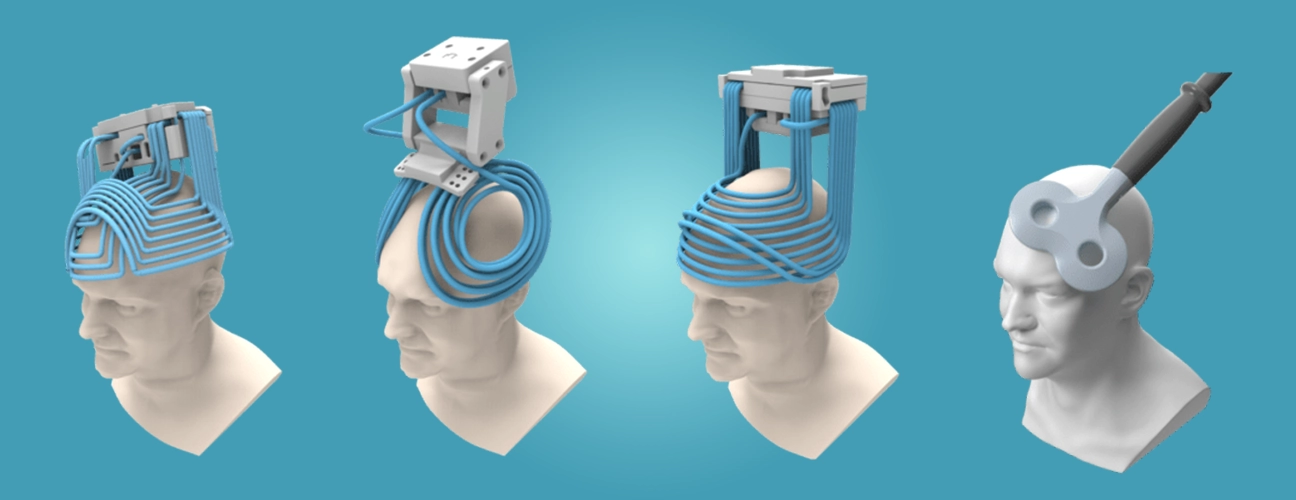Brainsway Deep TMS: Non-Invasive Brain Stimulation for Movement Disorder Symptoms
Brainsway Deep Transcranial Magnetic Stimulation (Deep TMS™) is a non-invasive neurostimulation technology that delivers magnetic pulses to deeper and broader brain regions compared to traditional TMS. While primarily known for its applications in mental health, Brainsway Deep TMS is being investigated as a potential therapeutic tool for managing symptoms of certain movement disorders.

Applications in Movement Disorders with Brainsway Deep TMS:
|
Targeted Stimulation of Motor Pathways: Deep TMS utilizes specialized H-coils designed to reach deeper brain structures involved in motor control, such as the motor cortex and prefrontal cortex, which are implicated in movement disorders like Parkinson's disease. |
Potential for Symptom Improvement: Research suggests that Deep TMS may offer moderate improvement in motor symptoms of Parkinson's disease, including bradykinesia (slowness of movement), rigidity, and potentially tremors. Studies have explored bilateral stimulation of the motor and prefrontal cortices. |
|
Non-Invasive and Well-Tolerated: Unlike Deep Brain Stimulation (DBS), Deep TMS is a non-surgical outpatient procedure that does not require hospitalization or anesthesia. It is generally well-tolerated with minimal systemic side effects. The most common side effects are mild and temporary, such as headache or scalp discomfort. |
Add-on Therapy Potential: Deep TMS is being explored as an adjunctive therapy to complement existing pharmacological treatments for movement disorders, potentially enhancing their effectiveness or allowing for lower medication dosages over time. |
|
Impact on Non-Motor Symptoms: Emerging research indicates that Deep TMS targeting specific brain regions may also have a positive impact on non-motor symptoms associated with movement disorders, such as depression, anxiety, and cognitive function. |
|
